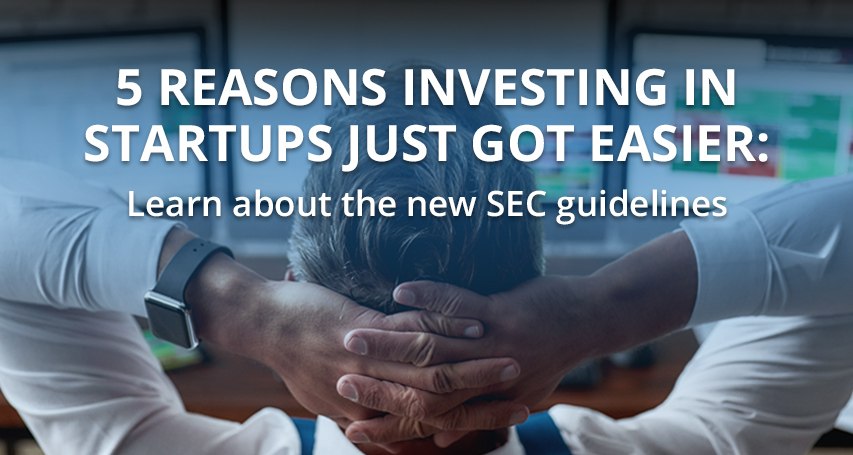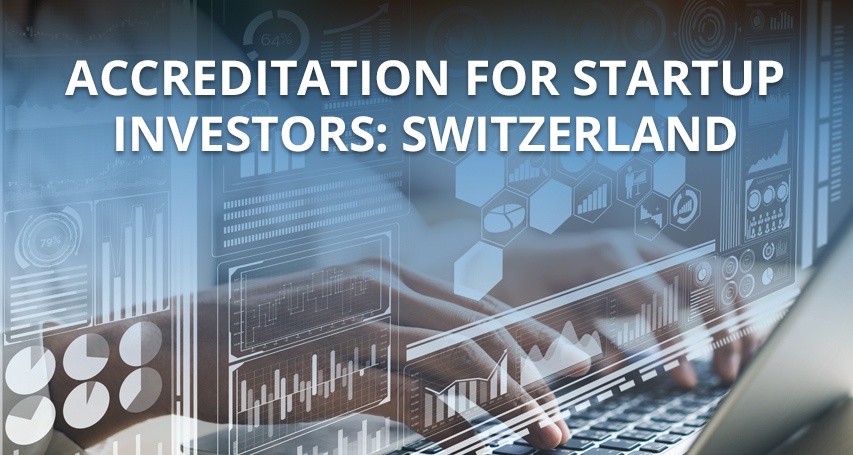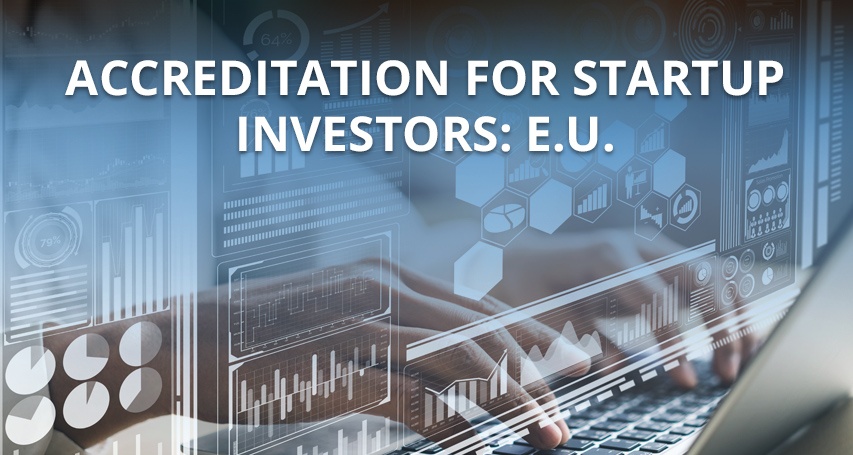By OURCROWD
The decision by the US Securities and Exchange Commission (SEC) to expand its definition of an “accredited investor” paves the way for thousands more aspiring venture capitalists and angel investors to benefit from investing in the private markets.
The new rules, which took effect Dec. 8, 2020, will further democratize the ability to invest in startups before they go public, allowing more investors to enjoy the often outsize pre-IPO returns accessible until now only to institutions and high net worth individuals.
Before the changes, “accredited investors” were defined as the following:
- Individuals with more than $1 million in net worth (excluding the value of any primary residence) or who have earned more than $200,000 per year (or $300,000 with a spouse) in each of the last two years.
- Related parties to the issuer of securities, including its executive officers and directors.
- Certain specified organizations with more than $5 million in assets.
- Institutional investors such as banks, and other entities which meet certain legal criteria.
The following are now added to the definition of “accredited investors”:
- A person who holds in good standing one or more of the following professional certifications: General Securities Representative license (Series 7), Private Securities Offerings Representative license (Series 82), or Investment Adviser Representative license (Series 65); and/or a “knowledgeable employee” of a private investment fund.
- Brokers, dealers and registered investment advisers exempt from registration under the U.S. Investment Advisers Act.
- A spousal equivalent of any of these individuals.
- Family offices with assets under management in excess of $5 million that was not formed for the specific purpose of acquiring interests in the securities offered, and whose prospective investment in the securities is directed by a person who has such knowledge and experience in financial and business matters that such family office is capable of evaluating the merits and risks of such an investment.
- A legal entity with investments in excess of $5 million that was not formed for the specific purpose of investing in the securities offered, including governmental entities, rural business investment companies, limited liability companies.

The change occurred in a week when startups DoorDash and Airbnb both went public, creating more than $100 billion of market cap combined. But even these blistering, back-to-back IPOs only underscored the gulf between public investors, who saw their opening-day shares double in value, and private shareholders who had been able to participate in the companies’ earlier funding rounds and enjoyed logarithmic returns.
The change is timely and a great step forward. The SEC notes that private investments, exempt from the rigorous oversight of public offerings, are tilted toward areas of the economy that “disproportionately create new jobs, foster innovation, and provide for growth opportunities,” making them increasingly attractive to sophisticated investors.
Private offerings are exempt from the rigorous registration and disclosure requirements of the U.S. Securities Act, making them less burdensome for small companies to manage, but also removing the safeguards designed to protect potential investors from bad deals or unscrupulous players. This makes private offerings high risk and, in an effort to shield people who cannot afford to lose their savings, they are restricted by law to “accredited investors” – individuals or institutions judged by the SEC as having the knowledge and experience to assess the risks of these opportunities.
In 2019, according to the SEC’s own estimates, $2.7 trillion was raised through exempt offerings, more than double the $1.2 trillion raised in public offerings. $1.56 trillion was raised under Rule 506(b) and 506(c). Sophisticated investors have long recognized the higher returns available in the private markets. Tiger 21, a peer membership network for high-net-worth individuals, estimates that the wealthiest individuals direct more than 50% of their portfolios to alternative assets. Yale University, the country’s top-performing endowment in the past three decades that uses a model followed by many others, has raised its allocation to venture capital from 13.7% in 2014 to a target of 23.5% in 2021.
Until now, only institutions and “accredited investors” who could demonstrate a specified level of net worth, income or investments, could participate in these private market deals. Under SEC rules, “accredited investors” may participate in investment opportunities that are generally not available to non-accredited investors, including certain investments in private companies, startups, and offerings by certain hedge funds, private equity funds, and venture capital funds. These private investment opportunities do not have the rigorous disclosure and procedural requirements, and related investor protections, provided by registration under the Securities Act of 1933.
While the old definition provides safeguards to protect those who could not afford to sustain losses in such high-risk offerings, it also “discriminates against financially sophisticated, lower income and net worth Americans,” said SEC commissioner Hester Peirce.
The Securities Act contains a number of exemptions from its registration requirements and authorizes the commission to adopt additional exemptions. The SEC’s aim is to simplify and improve the exempt offerings to promote capital formation and expand investment opportunities, while maintaining and even improving investor protections. The SEC says it will continue to consider the effect of these changes, and may propose more amendments in future.
Many exempt U.S. private investments are offered under Rule 506 of Regulation D of the U.S. Securities Act.
Under the new definitions and terms applied to Section D (§ 230.501 of the SEC Rules), “accredited investors” now include those who may not meet the previous criteria of personal wealth but have sufficient knowledge and expertise to participate in private deals without the safeguards required for public offerings. The new rules replace the old notion that wealth is the only measure of the “financial sophistication” required by law, permitting investors with reliable alternative indicators of financial sophistication to participate in such opportunities, while still maintaining the safeguards necessary for investor protection and public confidence.
“The final rules create new categories of individuals and entities that qualify as accredited investors irrespective of their wealth, on the basis that such investors have demonstrated the requisite ability to assess an investment opportunity,” the SEC says.
For information on how to invest in companies and funds in the OurCrowd portfolio, and to learn more about becoming a venture capitalist, click HERE.










